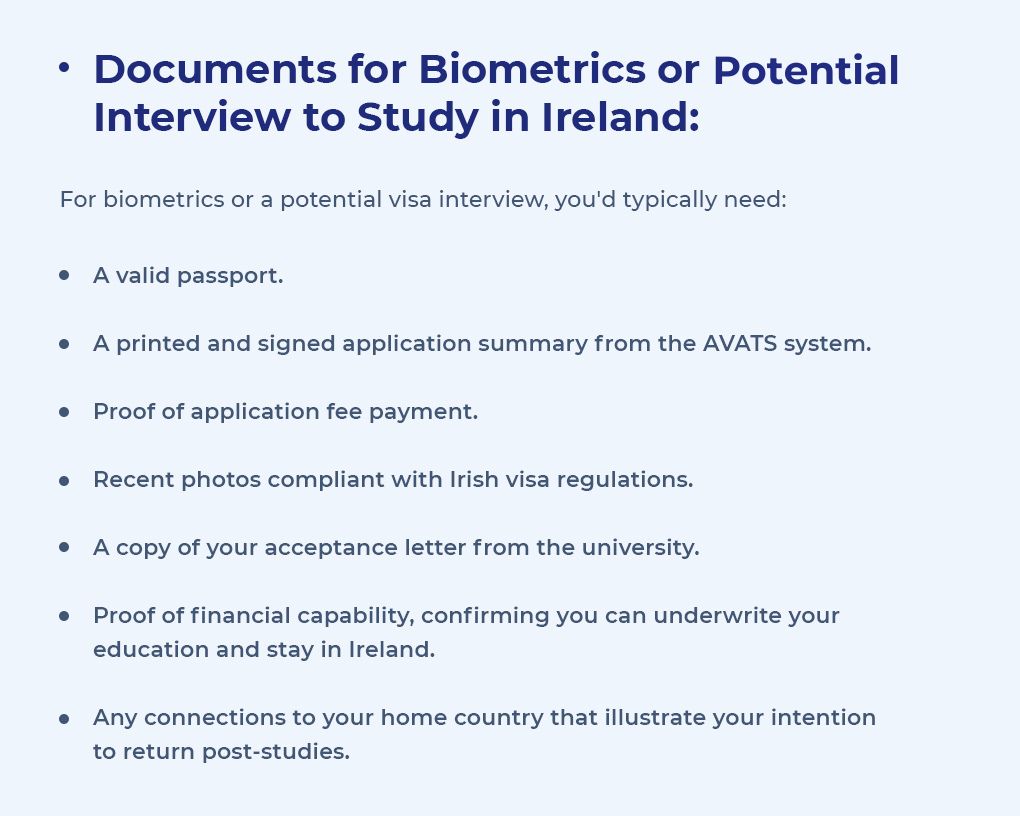

Ireland, often referred to as the "Emerald Isle" due to its lush green landscapes, is not only a beacon of cultural richness but also a significant player in the higher education arena. Its globally recognized universities, emphasis on critical thinking and creativity, and a warm embrace of international students place it prominently on the world's academic map.
Combined with its rich literary heritage, groundbreaking research opportunities, and a mosaic of traditions, Ireland guarantees a comprehensive and enlightening academic journey.
For those seeking an educational odyssey in this Celtic nation, this guide endeavours to shed light on the way, facilitating a smooth integration into the Irish academic milieu.
The Irish academic realm is increasingly recognized as a beacon of excellence and innovation on the global educational stage. With several institutions renowned for their contributions to research and scholarship, Ireland's commitment to quality education stands strong. But what makes studying in Ireland truly stand out?

1. Self-assessment for Studying in Ireland: Setting the stage for an academic stint in Ireland begins with introspection and self-assessment. This foundational stage aids aspiring students to synchronize their educational ambitions with their inherent skills, future objectives, and overarching life blueprint.
Given Ireland's multifaceted academic landscape and plethora of avenues, it becomes crucial for students to evaluate and decipher their distinct preferences and aims prior to embarking on the application journey.
2. Research your options for Studying in Ireland: Crafting your academic trajectory in Ireland necessitates meticulous exploration. With an array of reputable institutions and a rich variety of courses available, pinpointing the perfect university and course demands a judicious and informed strategy.
This section offers a systematic guide to sift through the vast array of academic alternatives and pinpoint the options that align seamlessly with both your scholarly goals and individual predilections.
2.1. Diversity of Institutions: Ireland, akin to many leading study destinations, boasts a dynamic tapestry of higher education institutions. It includes globally recognized universities like Trinity College Dublin, University College Dublin, and the National University of Ireland, Galway. Additionally, Ireland houses numerous institutes of technology and specialized colleges, offering a broad range of academic and vocational avenues.
2.2. Course Offerings:
• Broad Spectrum: Irish universities present a vast array of undergraduate, postgraduate, and doctoral programs. From arts and humanities to STEM, business, or a fusion of disciplines, Ireland’s academic institutions cater to diverse academic pursuits.
• Curriculum Structure: It's essential to delve deep into the curriculum on offer. Irish courses often maintain a harmonious balance of theoretical insight and real-world exposure. Some courses are heavily research-driven, while others might emphasize work-integrated learning experiences.

2.3. Faculty Credentials:
• Expertise and Renown: Faculty in Irish universities often stand at the forefront of their disciplines. Aspirants should scrutinize faculty qualifications, the breadth of their research, and their broader contributions to both academic spheres and relevant industries.
• Student-Faculty Ratio: A favourable ratio is often indicative of personalized learning environments, which is particularly vital for subjects that demand closer student-faculty interactions and research-oriented courses.
2.4. Location and Environment:
• Geographical Variety: From the bustling streets of Dublin to the serene landscapes of Galway, Ireland offers contrasting experiences. The decision between an urban setting and a tranquil environment can notably shape your study experience.
• Weather Factors: Ireland is renowned for its temperate maritime climate. Rain is a frequent companion, but the mild temperatures make it an amiable environment for most international students.
2.5. Campus Culture and Facilities:
• Cultural Activities and Clubs: Emphasis on holistic student growth is evident in Irish universities. It's wise to explore the range of extracurricular pursuits, societies, and clubs available - from Gaelic games to traditional Irish music and dance, there’s a rich cultural milieu to dive into.
• Infrastructure: Advanced libraries, state-of-the-art research centres, sports facilities, and dynamic cultural venues characterize many Irish campuses, ensuring a well-rounded student life.
2.6. Using Multiple Resources:
• Official Websites and Brochures: These serve as primary reservoirs of comprehensive information about courses, faculties, admissions, and other vital aspects.
• Online Student Forums and Reviews: Platforms such as Boards.ie, College Times, and others provide first-hand reviews, anecdotes, and advice from existing and alumni students.
• Alumni Networks: Interactions with alumni offer an unbiased perspective on their university experiences, providing insights into the strengths and potential challenges of the institution.

3. Check Entry Requirements for Studying in Ireland
3.1. Understanding the Requirement
• Undergraduate Programs:
o Leaving Certificate: Most Irish universities demand results from the Irish Leaving Certificate Examination, especially for EU students. International students would need equivalent qualifications from their home countries.
o Foundation Programs: For students from non-EU countries who don’t directly qualify, many Irish universities offer foundation programs to bridge the gap.
• Graduate Programs:
o Undergraduate Transcripts: An undergraduate degree or its equivalent is usually essential. Some competitive courses might ask for an honors degree or specific grades.
o Specialized Tests: Programs like business might require GMAT scores, while some STEM fields could ask for GRE scores.
3.2. Choosing the Right Test:Each university and program in Ireland may have its unique criteria. Thorough research ensures that the entrance tests or qualifications you present are in sync with your chosen institution's requisites.
English Proficiency Exams for International Students willing to Study in Ireland
3.3. Demonstrating Language Proficiency
As courses in Irish institutions are primarily in English, non-native speakers must demonstrate English proficiency:
• IELTS (International English Language Testing System): Universally accepted in Ireland, it assesses listening, reading, writing, and speaking skills in English.
• TOEFL (Test of English as a Foreign Language): Popular among international students, it evaluates the same set of skills in English.
• PTE Academic: Increasingly accepted by Irish universities, this computer-based test measures English language proficiency.
3.4. Selecting the Best Fit
The decision between IELTS, TOEFL, or PTE Academic should consider the university's specific requirements, your familiarity with the test format, and test availability in your region.

Preparation Tips
3.5. Start Early
Kickstart your preparation well in advance – ideally 6-12 months ahead. This allows you to become familiar with the test format, address areas of concern, and have ample practice sessions.
3.6. Resources and Training
• Preparatory Courses: Dedicated coaching centres offer systematic courses for these exams, ensuring detailed coverage of content, practice materials, and insights.
• Online Platforms: Websites like IELTS Simon, E2 IELTS, and Magoosh offer abundant resources, tutorials, and mock tests.
• Official Guides: Leveraging guides from test organizers can provide authentic understanding, practice questions, and time-tested strategies.
3.7. Practice Tests
Regularly taking mock tests is invaluable. They help assess readiness, identify areas requiring attention, and familiarize you with the test environment.
3.8. Test Day Strategy
Having a robust strategy for the test day is crucial. Effective time management, staying calm, and diligently reading the instructions can make a significant difference in performance.
4. Apply to Institutions: Navigating the Irish University Application Process
4.1. Categorizing Your Choices
• Dream Universities: These are institutions where your qualifications might be just on the edge or slightly below the average accepted student's credentials. Securing admission could be ambitious, but the endeavour can be worthwhile.
• Target Universities: Your academic profile corresponds closely with the standard profile of admitted students. You have a favourable chance of acceptance.
• Safety Universities: Here, your qualifications are above the average of typically admitted students, making acceptance more likely unless unforeseen issues arise.
4.2. Factors to Consider

When selecting a university, beyond academic compatibility, prospective students should weigh:
• Campus Atmosphere and Dynamics: The ambiance, ethos, and overall character of the university can shape your educational experience.
• University Size: Do you resonate more with a comprehensive institution boasting diverse opportunities or a boutique institution offering a close-knit learning environment?
• Location Dynamics: Reflect on the location – is it in a vibrant city like Dublin or Cork, or in a tranquil countryside setting? The local climate and its match with your comfort zone should also be pondered.
• Available Infrastructure and Amenities: Investigate the available facilities, such as libraries, research hubs, and recreational zones.
• Opportunities for Practical Engagement: Seek out universities with strong research opportunities, work placements, or internships that allow you to garner tangible experience in your chosen domain.
Documentation: The Pillar of Your Irish University Application
4.3. Academic Transcripts
• Obtain your official academic transcripts ahead of time. Depending on the course and institution, you might need an International Credential Evaluation, facilitated by organizations like NARIC Ireland.
4.4. Letters of Recommendation (LoR)
• Many Irish universities request 2-3 LoRs. These are best obtained from educators or professionals who are acquainted with your academic and personal accomplishments.
• Ensure your recommenders have ample lead time and acquaint them with the specifics of the program you aim for, aiding them in tailoring their endorsements.
4.5. Personal Statement
• This document provides insights into your personal journey, aspirations, reasons for picking a particular course, and your interest in the chosen Irish institution.
Stay genuine and make sure your passion shines through. Follow the stipulated length, meticulously proofread, and consider obtaining feedback from trusted sources.
4.6. Exam Scores
• Depending on the course and institution in Ireland, you may need to share your standardized test scores directly. Some Irish institutions may accept preliminary self-reported scores, with the mandate for official scores upon admission.
4.7. Supplementary Materials
• Some courses, especially in the creative domain, may demand additional submissions like portfolios, writing samples, or a detailed CV.
Application Fee: The Necessary Expenditure
4.8. Costs and Planning
• Application fees for Irish universities typically hover between €30 to €55. Note that international students might sometimes be subjected to different fee structures.
4.9. Waivers and Concessions
• Several Irish institutions extend fee waivers or reductions for applicants under financial duress. It's prudent to scan the admissions section of the university portal or connect with their admissions office for waiver possibilities.
5. Financing Your Education:
Making Your Irish Academic Dreams Viable
Embarking on higher education in Ireland is an investment in your future. While it carries financial implications, with the right planning and awareness, these can be navigated successfully. Here's an exploration into the monetary facets of furthering your studies in the Emerald Isle.
Estimating Your Expenses:
Studying in Ireland
5.1. Tuition Fees
• Tuition costs for Irish universities vary, hinging on both the course and the international status of the student.
International undergraduates might expect tuition fees spanning from €10,000 to €25,000 annually. For postgraduate courses, fees typically lie between €10,000 to €30,000 each year.
5.2. Living Expenses
• Living costs are influenced by location. Urban centres such as Dublin, Cork, or Galway can demand higher living expenses compared to more provincial areas like Limerick or Waterford. A student's monthly living expenditure could fluctuate between €800 to €1,500.
5.3. Books and Supplies
• Expenses for academic materials can weigh in considerably. Annually, students might allocate between €500 to €1,000 for textbooks and essential resources. Leveraging library resources, buying second-hand, or going digital can be cost-saving strategies.

5.4. Travel and Miscellaneous Costs
• Account for travel expenses, especially if you have plans to visit home during academic intermissions. Also, earmark funds for health insurance, personal indulgences, and unforeseen outlays.
Navigating Financial Aid
5.5. Scholarships
• Numerous Irish institutions extend scholarships, with many contingent on academic achievement. Some are specifically designed for international students. Scholarships can vary, ranging from modest fee reductions to comprehensive tuition coverage. It's prudent to peruse the institution's scholarship or financial aid webpage.
5.6. Bursaries
• Bursaries in Ireland, akin to scholarships, are non-repayable financial awards. While many are predicated on financial need, certain universities earmark such funds for overseas students.
5.7. On-Campus Employment
• In Ireland, international students holding a Stamp 2 immigration permission can work up to 20 hours weekly during academic sessions and 40 hours weekly during vacation periods, obviating the need for a separate work permit.
5.8. Research and Teaching Assistantships (for Graduate Students)
• Irish graduate students might avail opportunities as teaching or research assistants. These roles can proffer a financial stipend and occasionally, a tuition fee deduction. They are competitive and generally entail academic or research-related commitments.
Considering Education Loans
5.9. Education Loans in Your Home Country
• With the global recognition of Irish education, numerous banks worldwide facilitate loans for students keen on studying in Ireland. The nuances, interest rates, and loan quantities might differ. In-depth research is essential to discern the most favourable loan alternatives.
Obtain a Study Visa for Ireland:
Once you've secured your place in an Irish institution, your subsequent imperative step is to acquire an Irish study visa. This guide will illuminate the path to this essential document.

6.1. The Importance of the Acceptance Letter
• Confirming Your Admission: On procuring an acceptance letter from an Irish educational institution, it corroborates your admission to their study program. Many universities might require an advance deposit to affirm your intent to join.
• Document Retention: Retain copies of your acceptance letter and any proof of deposits or fees paid. These documents will be instrumental during your visa application and validate your sincere intent to study in Ireland.
6.2. Familiarizing with the Application Form
• Purpose: The online visa application form, AVATS, is what you'll need to fill out to initiate your application for an Irish study visa.
• Detailed Review: Upon accessing the AVATS form, peruse it for completeness and precision. Verify that all particulars align with your acceptance letter and other supplementary documents. This form forms the backbone of your visa application.
6.3. Understanding the Supplemental Documentation
• Visa Application Checklist: The Irish Naturalisation and Immigration Service (INIS) provides a checklist of documents required for the student visa application. This typically includes passport photos, a signed application summary, proof of fees paid, and private medical insurance, among others.
• Photo Requirements: Ensure your passport photos adhere to the specifications prescribed by the INIS. Compliance is crucial to avoid any delays in visa processing.
6.4. Preparing for the Biometrics Appointment and Potential Interview
• Biometrics Scheduling: Depending on your nationality, Ireland may necessitate biometric data as part of the visa application. If needed, instructions will be provided after the application submission.

• The Interview Process: While not every applicant undergoes an interview, those who do will engage with a visa officer. You might be quizzed about your academic goals, financial readiness, and home country affiliations. Always answer candidly and succinctly.
7. Pre-departure Preparation:
Stepping into the Emerald Isle Journey For Indian students set on voyaging to Ireland for higher studies, a whirlwind of emotions swirls – from sheer excitement to inevitable jitters. As you stand on the brink of this novel adventure, let's delve into the pivotal pre-departure preparations:
7.1. Finding Your Irish Home: Accommodation
• On-campus vs. Off-campus:
o On-campus Housing: Living on-campus, in places like university halls or student villages, offers an immersive Irish university experience. You're a stone's throw from lectures, and it's a fertile ground for community engagement. Typically, utilities and services are often wrapped into the total fees.
o Off-campus Housing: Those keen on autonomy or perhaps a lighter strain on the pocket may gravitate towards off-campus accommodations.
Particularly in cities like Dublin, where on-campus accommodation can be premium-priced, off-campus options might be more cost-effective. Always weigh the transit routes and daily travel times.
• Contracts and Agreements: Whether you're leaning towards on-campus or an off-campus dwelling, meticulously understanding lease or housing agreements is non-negotiable before making a commitment.
7.2. Protecting Your Well-being: Health Insurance in Ireland
• An Essential Shield: While Ireland boasts of a robust healthcare system, it can be pricey for those without insurance. Hence, international students mustn't overlook health insurance.
• Health and Insurance Levy: International students aren't typically entitled to the public health services funded by taxpayers. However, universities might have a Health and Insurance Levy, covering basic medical service on campus.
• University Health Plans: Many Irish institutions offer health insurance schemes designed with students in mind, encompassing a broad spectrum of medical needs.
• External Insurers: Outside the campus arena, several insurers proffer health policies tailored for international students. A diligent comparison of the perks, premiums, and reviews is essential.

7.3. Packing for Ireland: What to Bring Along
• Clothing: Irish weather, known for its unpredictability, calls for layers. A waterproof jacket and sturdy shoes for rain are indispensable.
• Academic Essentials: Certain specialty books, gadgets, or instruments might be more wallet-friendly in India or perhaps not as accessible in Ireland. It's judicious to pin this down in advance.
• A Slice of Home: Snapshots, cherished mementos, or your treasured Indian snacks can be sources of comfort during those occasional pangs of homesickness.
7.4. Welcoming the Irish Experience: Orientation Programs
• A Heartfelt Introduction: Orientation sessions are crafted to pave the way for international students, unveiling the campus, academic protocols, and available support channels.
• Forging Bonds: Seize this inaugural opportunity to mingle with fellow international attendees, senior students, and maybe even some faculty members. It's the cornerstone of your emerging social and academic circle.
• Diving into Irish Culture: These introductory programs invariably spotlight Irish traditions, local customs, and critical cultural nuances. It's an enriching primer on life in Ireland and its inherent values.
8. Landing and Settling In: Embarking on Your Irish Adventure Stepping onto Irish soil for the first time can unleash a cocktail of excitement and apprehension.
This land of mesmerizing landscapes, historic towns, and vibrant cities eagerly awaits you, but so does the task of melding into an unfamiliar cultural and scholastic setting.
Here's a detailed guide for Indian students to smoothen their maiden days in Ireland:
8.1. A Strategic Arrival: Coming in Advance
• Time to Acclimatize: Arriving a week or two before your course commencement or orientation is advantageous. This span lets you get acquainted with the new surroundings, including adjusting to the Irish weather and local peculiarities.
• Combatting Jet Lag: Given the time difference between India and Ireland, jet lag can be a genuine concern. Landing ahead of time allows your system to synchronize with Irish schedules, ensuring you're sprightly and ready for your academic inception.

8.2. Financial Footing: Initiating an Irish Bank Account
• The Imperative: Setting up a local Irish bank account eases monetary affairs, facilitating simple bill settlements and receiving funds from overseas, including India. Plus, many Irish businesses favour dealings via local banks.
• Documentary Needs: Typically, you'd be asked to show your passport, Irish study visa, proof of a local residence (like a rent contract or utility bill), and occasionally an admission confirmation from your educational institution.
• Student-tailored Packages: Numerous Irish banks, especially those proximate to universities, offer banking solutions crafted for students. These often come with lowered charges or additional benefits.
8.3. Keeping Connected: Procuring an Irish SIM Card
• The Logic: Having an Irish mobile number is not just cost-effective for in-country communications but also vital for diverse procedures, from bank confirmations to urgent contacts.
• A Spectrum of Options: Prominent telecom entities in Ireland encompass Vodafone, Three, and Eir, to name a few. Delve into various plans to identify one that matches your needs and financial plan.
• Maintaining Bonds with India: Ascertain that your chosen package has competitive tariffs or bundles for international communications, ensuring you stay linked with loved ones in India.
8.4. Familiarizing Yourself: Navigating the University Premises
• Scheduled Strolls: Numerous Irish universities roll out guided campus strolls for newcomers. Spearheaded by well-versed students or personnel, these walks introduce you to key spots and sprinkle titbits of the university's legacy.
• Core Facilities: Familiarize yourself with the main academic structures linked to your course, libraries, health units, advisory services, student centres, and leisure amenities.
• Building Bonds: These early moments are golden for interacting with other fresh arrivals, sharing tales, and nurturing friendships that could stand the test of time.
9. Delving into Job Avenues: Decoding the Irish Employment Horizon as an Indian Scholar Ireland, renowned for its rich cultural tapestry and buoyant economy, unfolds a wide array of job openings for foreign students.
These vocational experiences not only buoy up your financial situation but also add meaningful dimensions to your career trajectory.
Here's a thorough breakdown of the job vistas for Indian students in Ireland:

Landing Job Opportunities: Understanding the Irish Work Scene as an Indian Student
9.1. On-Campus Jobs: The Immediate Preference
• Ease and Vicinity: On-campus jobs are often the initial option for international scholars in Ireland. These roles can encompass positions such as library assistants, student society members, academic tutors, or even roles in campus cafes and eateries.
• A Cultural Blend: Being employed on-campus entails mingling with a diverse student populace, enhancing your cultural insights and refining social competencies.
• Guidelines: In Ireland, non-EEA students (which includes Indian students) with valid immigration permission can work up to 20 hours per week during academic terms and up to 40 hours per week during vacations.
9.2. Placement Programmes and Internships
• Placement Programmes: Several Irish universities have placement or "work experience" segments integrated into their courses. This blend ensures students get a taste of real-world work settings related to their academic pursuits.
• Internships: These are often short-term roles or projects that provide practical exposure in your chosen arena, furnishing you with tangible skills that potential employers value.
9.3. Off-Campus Employment: Venturing Beyond University Boundaries
• Networking: Foster bonds with faculty members, delve into the university's alumni network, and actively engage with fellow students, as these connections can often lead to job referrals or openings.
• Job Portals: Make the most of Irish job platforms like IrishJobs.ie, Jobs.ie, and Indeed Ireland. These sites cater to a broad range of job seekers, presenting varied opportunities.
• Career Events: Irish educational institutions frequently host career fairs or networking sessions, bridging the gap between students and prospective employers. These events are invaluable for securing job interviews or offers.
9.4. Grasping Employment Protocols and Guidelines
• Stay Informed: While Ireland permits international students to work, there are specific regulations concerning work hours and job types. Familiarise yourself with these rules to maintain your student standing in the country.
• Advisory Point: Your institution's International Student Office or a similar entity can offer a wealth of information, elucidating work policies, entitlements, and opportunities tailored for international scholars in Ireland.
• Career Events: Irish educational institutions frequently host career fairs or networking sessions, bridging the gap between students and prospective employers. These events are invaluable for securing job interviews or offers.

10. Relish the Moment: An Irish Exploration Beyond the Classroom
Electing to study in Ireland is not just about academics; it's a holistic experience that shapes you in manifold ways. For an Indian student, this journey unfolds a rich tapestry of experiences, allowing them to craft their unique Irish narrative.
10.1. Delve In: Immerse in Irish Campus Life
• Bustling Campus Events: Irish institutions are hubs of vibrant activity. From St. Patrick's Day celebrations and Celtic music sessions to academic symposiums and ancient Gaelic festivities, there's a continuous stream of events to engage in.
• Student Societies & Organizations: Every Irish college and university boasts a plethora of societies and clubs reflecting diverse passions — be it Gaelic football teams, literature circles, traditional Irish dance troupes, or even curry appreciation groups. Indian students will find a slice of home in the numerous Indian Societies present across campuses.
• All-Round Development Workshops: Institutions frequently host sessions focused on vital skills, leadership dynamics, mental health, and intercultural competence. Such endeavours ensure students are primed for life's myriad challenges, promoting all-rounded evolution.
10.2. Connect: Weaving Your Irish Network
• Nurture Bonds with Academics: Engaging with your lecturers, tutors, and professors can be transformative. Many are distinguished in their fields, providing pathways to research engagements, invaluable guidance, and potent career advice.
• Alumni Connect: Alumni networks in Irish institutions are reservoirs of industry knowledge, potential career opportunities, and mentorship avenues. They serve as a conduit, bridging the scholastic and professional spheres.
• Fellow Students as Collaborators: The cosmopolitan student milieu in Ireland is a treasure trove of perspectives. Joint projects, group discussions, or even spontaneous hurling matches can spawn innovative initiatives, scholarly synergies, or lifelong bonds.
• All-Round Development Workshops: Institutions frequently host sessions focused on vital skills, leadership dynamics, mental health, and intercultural competence. Such endeavours ensure students are primed for life's myriad challenges, promoting all-rounded evolution.
10.3. Navigate the Irish Terrain
• Ireland's Varied Landscapes: From the bustling streets of Dublin and the poetic charm of Galway to the magical Cliffs of Moher and the serene landscapes of the Ring of Kerry, Ireland invites you to wander. Make the most of your holidays to discover and cherish this enchanting nation.
• A Cultural Quilt: Each county in Ireland radiates its unique traditions, cuisines, festivities, and tales. Dive into the Galway Arts Festival, experience traditional music in County Clare, or revel in the Dublin Literary Festival.
• Student-centric Exploration Options: Leveraging your student identity, you can frequently secure concessions on transportation, internal flights, and even lodgings. Universities and student collectives often orchestrate expeditions, offering an affordable and convivial medium to unravel Ireland's multifarious landscapes.
Ireland, reminiscent of its Celtic roots, offers a myriad of academic, work, and cultural experiences that perfectly complement your scholastic journey. For an Indian student, the vibrant and multifaceted Irish professional landscape delivers unparalleled insights, sharpening competencies and expanding horizons. Engaging in such a journey not only deepens your comprehension of a global work environment but also strategically places you in a world where intercultural competencies are highly prized.

Studying abroad is an exciting and life-changing experience that offers students a chance to gain a global perspective and valuable exposure ...

In our rapidly globalizing world, where boundaries are melting away and opportunities abound, proficiency in the English language has become ...

Choosing to pursue higher education abroad is an exciting and life-changing decision. Among the plethora of options available to internationa...

Studying abroad is a life-altering adventure that opens doors to new cultures, experiences, and opportunities. Among the plethora of global s...

Australia, renowned for its world-class education and diverse cultural experiences, continues to be a favoured destination for international ...

Australia is not just famous for its iconic Sydney Opera House, the Great Barrier Reef, and its unique wildlife; it is also recognized global...

Studying abroad is a life-changing decision, and with so many options available, it can be overwhelming to choose the right country and univers...

As of March 2022, Australia has seen a consistent rise in its international student numbers, with enrolments reaching 440,219. This marks an ...